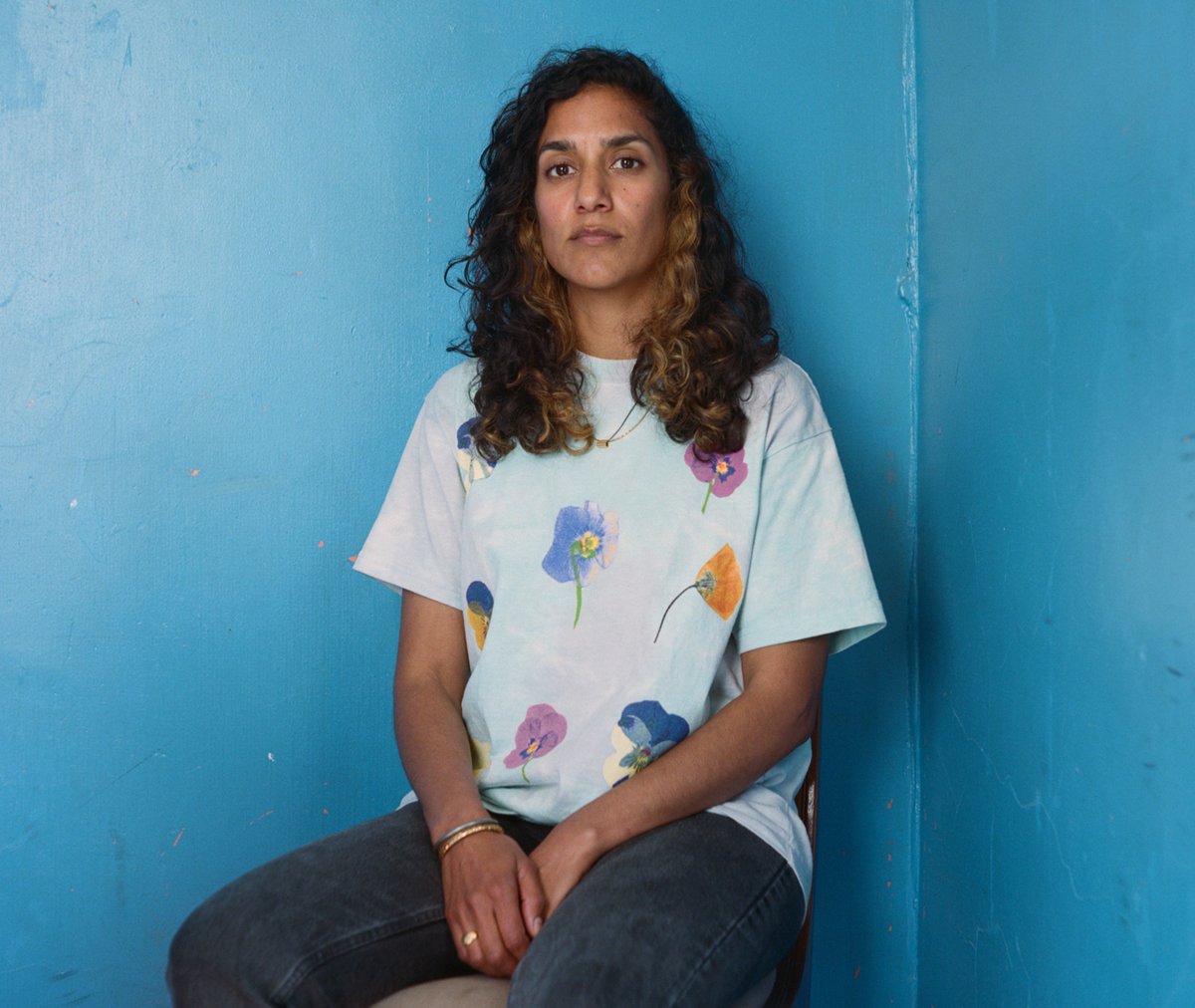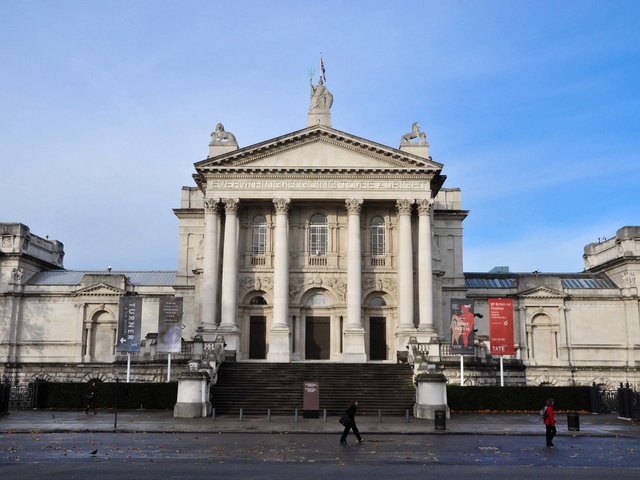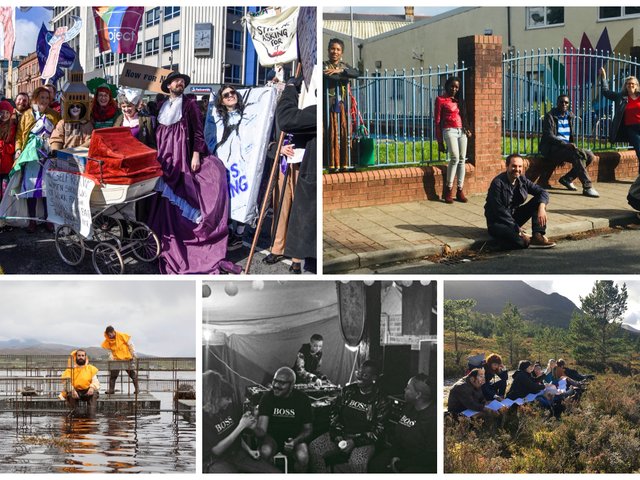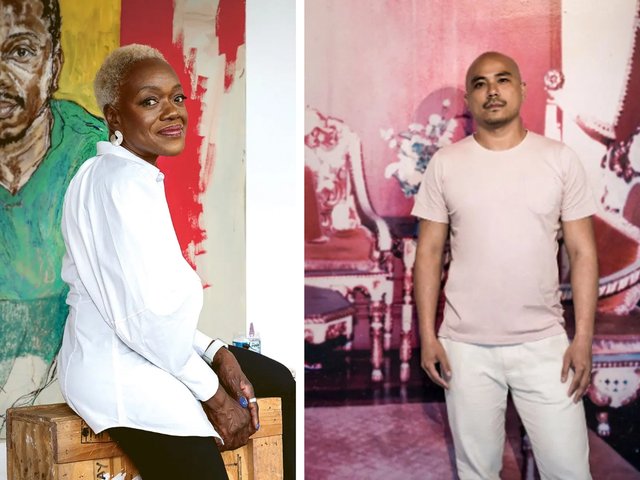Jasleen Kaur, whose uses everyday objects such as used cars, worship bells and bottles of the soft drink Irn-Bru in her work, has won the 2024 Turner Prize.
Scottish-born Kaur was one of the favourites to take home the £25,000 prize. As with all contenders, Kaur has recreated an existing show, in her case Alter Altar, which was at the Tramway in Glasgow in 2023.
Installed at London’s Tate Britain, where the prize has returned after outings to museums in cities including Liverpool and Hull, Kaur’s striking installation of a red Ford Escort draped with an enormous cotton doily, blasting out a mash-up of pop, hip-hop and qawwali devotional music from its sound system, helped clinch the award.
The jury commended Kaur, who was presented with the award by the actor James Norton, for “the considered way in which she weaves together the personal, political and spiritual” and for “choreographing a visual and aural experience that suggests both solidarity and joy”. They also praised her ability to “gather different voices through unexpected and playful combinations of material, locating moments of resilience and possibility”.
In her winner's speech, Kaur payed thanks to “the artists, the poets, the parents, the students who have shown me the slow and meticulous work of organising and world building,” as well as “the folk who orient their lives towards freedom in practice, not theory; who advocate for life, not death”.
She called for a ceasefire in the Middle East, voicing her support for demonstrators who were gathering outside of Tate Britain as the ceremony unfolded. They were protesting Tate’s ties to what they describe as “Israel’s regime of apartheid and genocide”, and calling for the institution to divest from organisations with links to Israel and “to use its power as a cultural institution to support Palestinians' rights”. This follows an open letter on the subject signed by more than 1,100 artists and art workers last week. Tate were approached for comment about the protests.
Kaur said: “This is not a radical demand, this should not risk an artist‘s career or safety. We are trying to build consensus that the ties to these organisations are unethical, just as artists did with Sackler [the family that has become indelibly linked to the global opioid epidemic]. I have been wondering why artists are required to dream up liberation in the gallery, but when that dream meets life, we are shut down [...] I want institutions to understand that if you want us inside, you need to listen to us outside. Ceasefire now, arms embargo now, free Palestine."
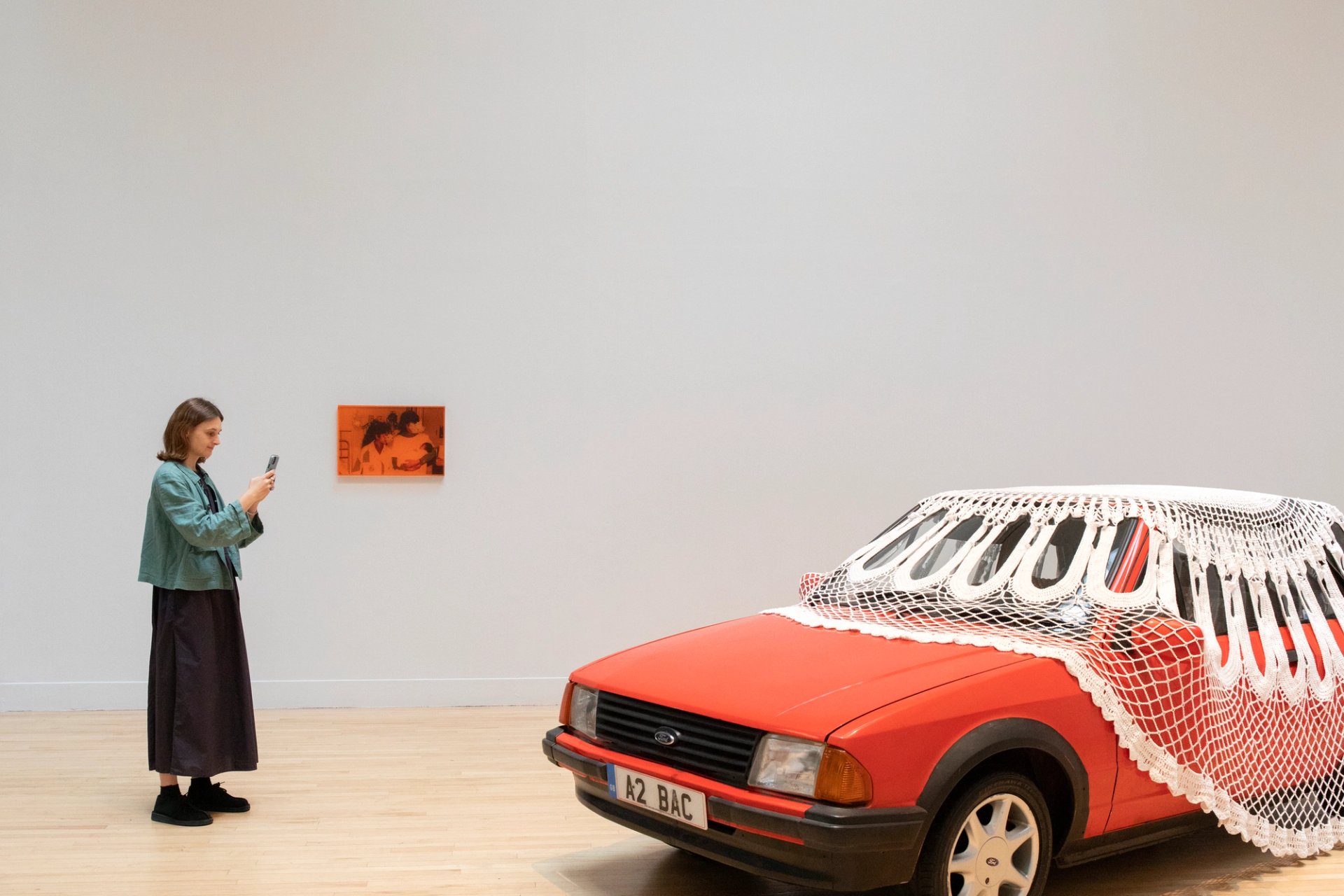
Installation view of Jasleen Kaur’s presentation in Turner Prize 2024 at Tate Britain, 25 September-16 February 2025
© Tate Photography, Josh Croll
Stories about family origins and community run through this year’s prize, and Kaur’s upbringing as a Sikh in Glasgow, where her family ran hardware and cash and carry stores, forms the bedrock of her art. In another part of her Tate Britain show, a long fake Axminster carpet leads to an altar-like table, covered in a ruched satin tablecloth. Above it is a suspended ceiling made of blue glass, which is strewn with objects including half-drunk bottles of Irn-Bru, Scottish pound notes, a long wool scarf and fruit pastels.
The Turner prize, regarded as one of the art world’s most prestigious awards and now in its 40th year, is presented to an artist born or working in Britain for an outstanding exhibition or presentation of their work held the previous year. This year’s grouping is full of tales of different heritages. Pio Abad, who was born in Manilla, the Philippines, has reconfigured his recent display at the Ashmolean in Oxford, which delved into the collections of the Ashmolean and the nearby Pitt-Rivers museum to highlight stories of colonialism and theft. The Romani artist Delaine Le Bas’s labyrinthine installation emerges from what she calls her “Gypsy-hippy-punk aesthetic”, while Claudette Johnson has presented many of the same large pastel portraits of Black men and women that were shown earlier this year at the Courtauld in London. They examine the marginalisation of Black people in Western art history, with Johnson’s family members often sitting as models. One particularly poignant work is a response to the murder of George Floyd at the hands of police in Minnesota in 2020.
The jury congratulated all four nominated artists for each of their “eloquent and distinctive presentations”, which they said were “representative of the high standard of British art at this present moment”. The jury added: “The artists this year embed an intimate sense of self, family and community within the circulation of cultures, beliefs and ideas.”
The members of the jury for this year’s edition of the prize are Rosie Cooper, the director of Wysing Arts Centre; Ekow Eshun, a writer, broadcaster and curator; Sam Thorne, the director general and CEO at Japan House London; and Lydia Yee, a curator and art historian. The jury is chaired by Alex Farquharson, the director of Tate Britain, who said: “In the Turner Prize’s 40th year, this shortlist proves that British artistic talent is as rich and vibrant as ever.”
A topic of contention
Since it was established in 1984, the annual Turner Prize has become well-known for dividing critics with some calling for the prize to be scrapped for its prioritisation of so-called activist politics.
But Eddy Frankel, Time Out’s art critic, said that Kaur's work “is just about as prescient and 'now' as art at the Turner Prize could hope to be”. He added: “Her installation presents a vision of Britain as a place of countless fragmented identities all jostling for place. But unlike so much other art that deals with similar topics this isn't dour, sad or judgemental, it's joyful, celebratory and almost confrontationally rebellious. A good statement about where this country is right now, and where its art is.”
The exhibition of the four shortlisted artists is at Tate Britain until 16 February 2025.


